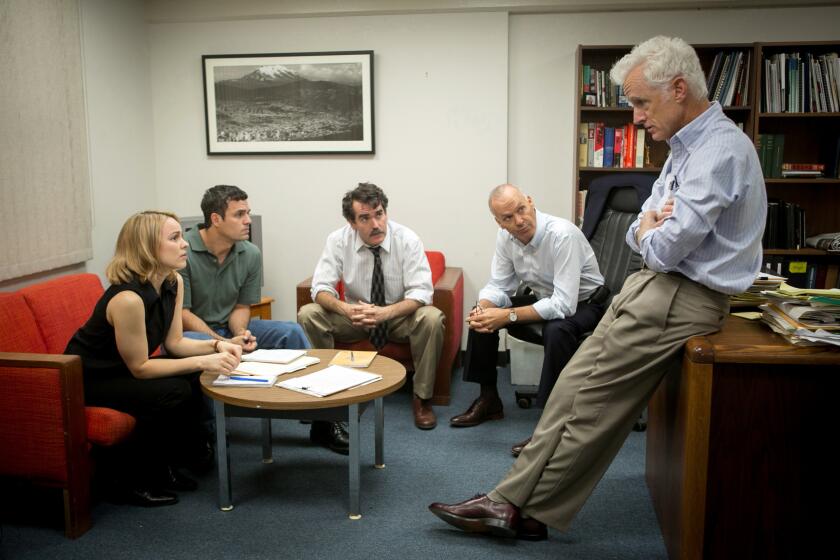China reports brisk expansion, and rising prices, to close 2009
China’s economy finished 2009 with a flourish, registering its greatest quarterly growth since the global financial crisis began more than two years ago.
But underlying the 10.7% economic expansion in the final three months of the year from the same period in 2008 are signs of growing inflationary pressure that could send the price of food and other commodities higher.
Government figures released Thursday showed China’s consumer price index, a gauge of inflation, rose 1.9% year-over-year in December, building on an increase of 0.6% a month earlier.
The producer price index -- a gauge of how much domestic producers pay to make their goods -- rose to its highest level since 2008, registering 1.7% year-over-year growth in December. A month earlier, the index went in the other direction, falling 2.1%.
The source of the increases, economists say, is the record new bank lending and stimulus money that flooded China’s economy last year, orchestrated by the government to keep growth rates high.
“This is quite serious,” said Arthur Kroeber, managing director of Dragonomics, a Beijing-based economic research firm. “We now know they poured too much money into the system.”
Kroeber said the consumer price index could be growing by a 5% clip by spring.
A harsh winter has damaged produce supply, sending prices up. Chinese are especially vulnerable to these shifts because they rely extensively on fresh groceries.
Shoppers at a Beijing Wal-Mart complained that rising prices were straining their budgets.
“Food prices have gone up so much, especially after the big snowstorm,” said Chen Songhui, 35, an interior designer. “I’ve heard talk about inflation in China this year. I think the food prices will continue to go up. If costs double, I don’t think I’ll be able to accept it anymore. But what choice do I have? I still have to eat. If that happens, I’ll just have to cut my expenses on other things.”
Forestalling inflation will not be easy, policymakers readily admit.
“The year 2009 might be the most difficult year of the Chinese economy. 2010 could be the most complicated year with uncertainties,” Liu Mingkang, chairman of the China Banking Regulatory Commission, said in Hong Kong on Wednesday.
Keep too much easy credit and stimulus money flowing and China risks soaring inflation and an expanding real estate bubble.
Rein in lending too tightly and growth may be stymied in a country where more than half the population of 1.3 billion still lives in poor, rural settings.
“They’re walking a tightrope,” said Ben Simpfendorfer, an economist for the Royal Bank of Scotland.
So far, the strategy has been to nudge the economy toward a safer path. Interest rates for three-month and one-year central bank bills were raised, new restrictions were placed on home buyers, and the central bank said new credit would be capped at levels 30% lower than 2009. Kroeber said it’s possible the central bank will restrain lending even more if inflation climbs too high.
Government investment was the most significant driver of growth in 2009. Beijing spent about $600 billion on infrastructure last year, 44% more than 2008.
Real estate also played a major role. The amount of new residential floor space sold in 2009 rocketed 35% compared with 2008, according to JPMorgan Chase & Co.
But with an expected pullback this year in loans and stimulus, China will have to rely more on domestic consumption to keep its GDP figures aloft.
This may be a tall order considering Chinese consumers’ penchant for saving and their low wages in comparison to corporate profits.
Currently, private consumption accounts for 40% of China’s GDP, significantly less than the 70% to 80% seen in developed countries.
To encourage spending, planners have renewed for the year several subsidies for consumers who purchase low-emission vehicles and home appliances.
Some economists are skeptical the products would sell well without the subsidies.
“They’re hoping for households to help pick up growth but there’s not much prospect of that,” said Alistair Chan, associate economist at Moody’s Economy.com.
Thursday’s figures showed retail sales increased 17.5% year-over-year in December largely on the back of automobile sales. China surpassed the United States last year as the world’s largest auto market.
Tommy Yang and Lily Kuo in The Times’ Beijing bureau contributed to this report.






